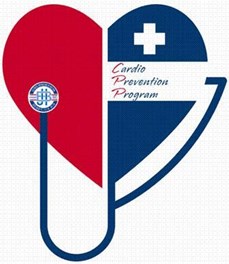
Michael E. Makover, MD FACP, Chief Medical Officer JIBEI
How not to have a heart attack or stroke
The Pension, Hospitalization and Benefit Plan of the Electrical Industry (PHBP) is very pleased to provide The CardioPrevention Program (CPP), a program that is unique to the JIB Medical.
There are few programs in the world that have anything even close to it and we believe there may be none as comprehensive.
This program is an invaluable benefit for all who take the CPP and use its information to greatly help improve their chances for a better future.
Atherosclerosis, known commonly as ‘hardening of the arteries’, is the leading cause of death, disease, disability and high medical cost, in the United States and in our Plan.
The good news: heart attacks and strokes are potentially 95% preventable!
The CPP is designed to:
- Detect atherosclerosis at the earliest possible stage
- Earlier than virtually any other method.
- Measure all of the significant risk factors.
- Advise you what to do
- We guide you as to how to neutralize your risks so that your arteries remain wide open and fully nurturing your tissues for a very long and productive life.
As long as your arteries are working well, they will not limit your lifespan or cause you any difficulty.
Stopping atherosclerosis means greatly reducing or eliminating:
- Heart attacks.
- Strokes.
- Circulatory problems in legs and aneurysms.
- Memory loss (Alzheimer’s, other Dementia).
- Male and female sexual dysfunction.
- Poor aging, reduced immune system and frailty.
Age does not disable anyone, only disease does. Atherosclerosis is a disease, not part of aging, and it is possible to prevent or control it.
The maximum human lifespan is actually 120 years. Only one person so far has achieved that (Jeanne Calment, who lived to 122 years, 164 days and made a rap CD when she was 121 years old), but more and more people are getting closer and closer, living longer and much better.
That good news will only favor those who do their part.
- Overeating, eating unhealthy food, smoking and drinking will not win anyone a long-life contract, much less a healthy one.
Advances in medical care are very effective in helping people correct any problems that lifestyle alone cannot prevent.
More good news: It is likely that 80-90% of all disease is preventable.
It is our belief that if everything works optimally (doctors, patients and the system), then heart disease is up to 95% preventable. Yet, currently, in the US alone, two people suffer a heart attack every minute and one dies – of a disease that is potentially 95% preventable. There is one stroke every minute and a stroke death every four minutes and all those are nearly as preventable as heart attacks.
We want to do better than the rest of America for the Local 3 membership and our other participants. We are developing many ways to do so. The CPP is one of the major programs that we think will help stem the tide of disaster that the above numbers represent.
How the CPP works
- Eligibility: Any participant in the PHBP.
- Age: Generally the CPP begins at age eighteen, but any participant who is younger and has higher risk (very overweight, diabetic, high cholesterol and/or has a strong family history for early heart disease) should be screened.
|
Younger people should strongly consider the CPP! The earlier you start in preventing or stopping atherosclerosis, the longer and better you will live. Starting even in the ‘teens and twenties is extremely worthwhile. Atherosclerosis begins in childhood. Children who are very overweight, are diabetic or have high cholesterol and/or a strong family history for early heart disease should be screened as early as age eight. Some infants already have yellow streaks of cholesterol in their brand-new arteries (especially if their mother was overweight during pregnancy). |
- The CPP is beneficial for people of all ages and for those who seem entirely well all the way up to those who already have advanced heart disease.
- The CPP is added on to your annual check-up, if you request to be in the CPP (though it can be added later if necessary).
- The number of CPP’s we can do weekly is limited, so some might have to be deferred.
- It takes very little extra time and is very easy to do as part of your regular check-up.
- These additional things happen, besides all the usual things done on a check-up:
- Some special cholesterol tests are included in your lab work (only one needle!)
- The doctor measures your waist circumference (gives an indication of how much unhealthy excess fat is hidden in your belly).
- You get an electrocardiogram (easy, harmless and painless) as usual and all of the regular measurements and exam.
- You are asked to fill out a detailed history of your family’s heart medical history as best you know it (you might want to do a little research ahead of time, as it is very important).
- The doctor completes a special report form to transmit the needed information to the CPP.
- You get a special type of sonogram of your neck that looks at the very thin inner lining of your arteries (the carotid arteries are close to the surface at that point). It is harmless and painless.
- It is called Carotid Intima Media Thickness, CIMT for short.
- CIMT tells you how much thickening from atherosclerosis there is and compares that to the average American to estimate your Vascular Age compared to your chronological age.
- It takes only about 15 minutes.
- You receive a detailed, comprehensive CPP Report individualized specifically for you within two months after the CIMT is completed.
- The report is written for you in all understandable terms with lots of extra materials to help you understand it and how to make healthy changes in your life.
- You then revisit your doctor at JIB to get your report (with a lot of very useful handouts). Of course, it also informs your doctor.
- Your JIB doctor reviews it with you and together you decide how to follow the recommendations.
- Much of the recommended changes are to learn to enjoy a healthy way of life.
- We have booklets and other materials that are easy to read and follow and will help you achieve your goals.
- We have two dieticians ready and eager to help any who ask.
- More help is on the way.
- If you also require medications, which are common, your doctor will explain them to you, evaluate them for you and prescribe as needed.
- The medications used for prevention of this type are well established and are among the safest medicines we have.
- Of course, all medicines, like everything else in life, have some risk. It is very important to think about the very high risk of not treating atherosclerosis in comparison to the extremely low risk of the medicines themselves. We have a brief article on statins (like Lipitor) use and safety if you would want more information.
- You revisit your doctor during the year for follow-up and management of your medications as needed, as often as required.
- Each year the CIMT is repeated with your check-up, with the lab tests, to see how you are doing. Adjustments will be made as needed based on the results. This is one of the few programs that can accurately detect changes in CIMT year to year.
- If you decide to see your own doctor with the report, we include a Handbook to explain the approach used by the CPP. Unfortunately, many doctors are unfamiliar with some of what comprises the CPP.
- The science of the CPP is very well established. The developers are professors at NYU School of Medicine and members of the National Lipid Association. There are professors around the United States and elsewhere who practice the same well-established advanced methods employed by the CPP.
- The approach of the CPP is more intensive than current national guidelines, but it is in accord with many experts and is based on solid scientific evidence.
- You are of course always free to not follow the recommendations in the report.
We strongly recommend that you get at least your initial review of your CPP Final Report from a JIB doctor before you see your own doctor. Many doctors, even cardiologists, are not yet either aware of or comfortable with some of the tests and concepts included in the CPP, so outside doctors might be unfamiliar with aspects of your report and its recommendations.
If you cannot return to see our doctor, you can ask your doctor to read the Handbook of Management of Atherosclerosis that we give you (it is written for doctors, but you will probably be able to follow it pretty well). If you find the CPP Report convincing to you, you can request that your doctor follow the recommendations for you. You can also choose to get your treatment from one of the doctors at JIB Medical besides seeing your own doctor.




